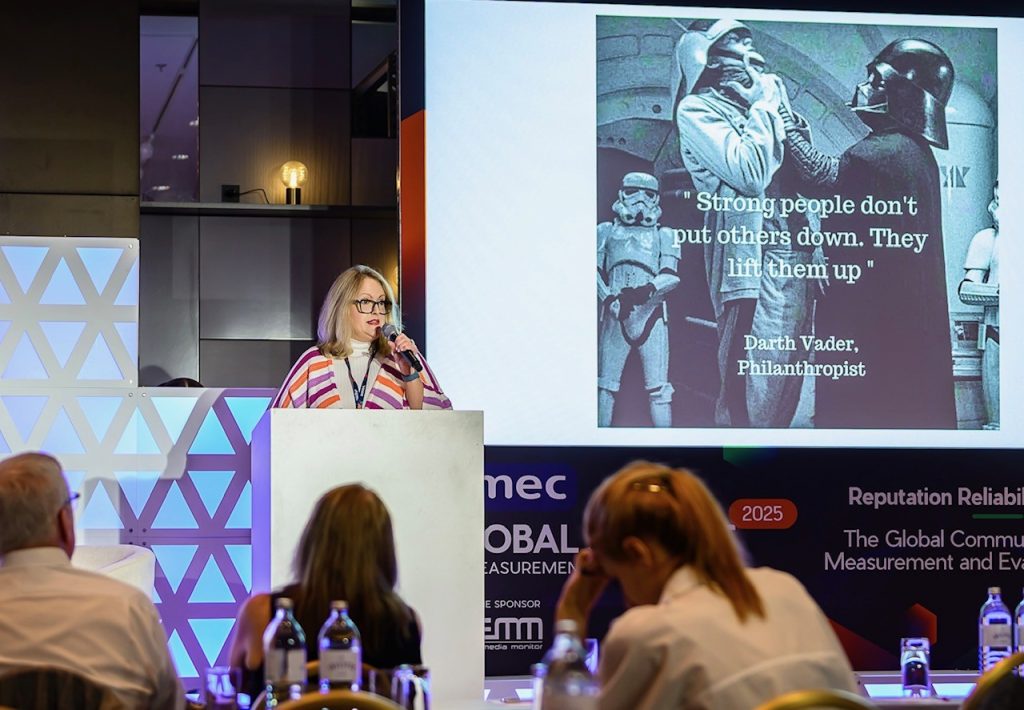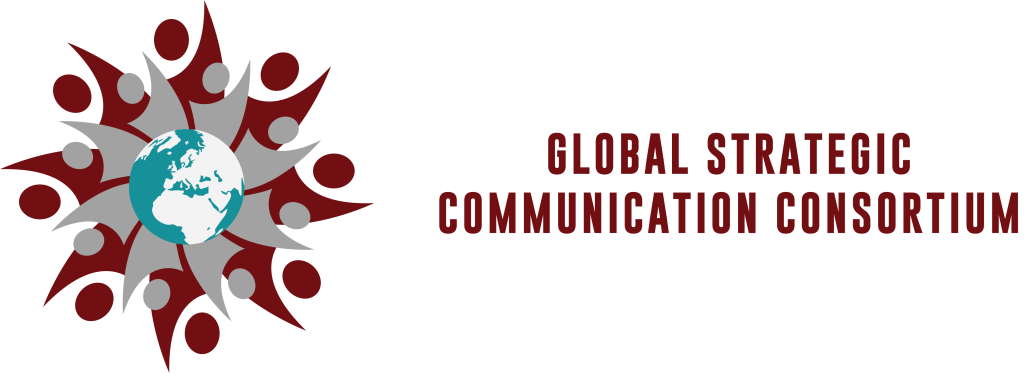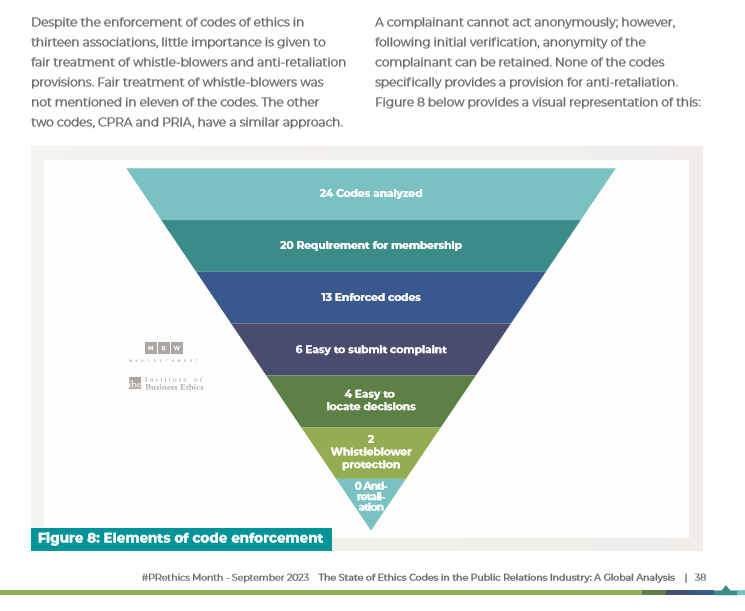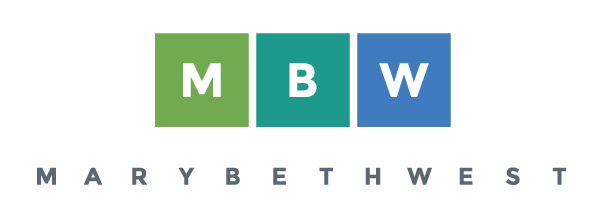New PR Research: “Organizational Gaslighting” on the Rise
Many PR leaders report that "organizational gaslighting" is on the rise, violating PR ethics codes while stoking disinformation.
NEWS RELEASE:
A new public relations industry scan of PR leaders in the U.K. and the U.S. has uncovered troubling signs that unethical “organizational gaslighting” is on the rise in PR agency-client relationships – impacting whether (or not) truthful information is given to news media and the wider public.
The term “gaslighting” was Merriam-Webster’s “Word of the Year” in 2022.
“Gaslighting” originated and later evolved with the 1940s film noir starring Ingrid Bergman, “Gaslight,” in which a devious Victorian-era husband tries to make his heiress wife think she’s going insane, in part by manipulating gaslights in a room to appear as if they dim on their own, while insisting to his wife that she is only imagining it.
Gaslighting refers to individuals or organizations using manipulative communication techniques and situational sleights of hand to wield and preserve their own power, by misleading, deceiving, and abusing the trust of others — often forcing victims to question reality or even their own sanity.
The new PR industry scan about organizational gaslighting in public relations-focused operations — funded by Tennessee PR industry veteran Mary Beth West, APR, FPRCA and conducted by The Pulse Business research firm in London — gauged feedback from 50 leaders in the U.K. and U.S. PR industry, including an array of one-to-one interviews, from late May to early June 2025.
The inquiry resulted in PR leaders citing work-related organizational gaslighting problems, such as encountering pressure to compromise facts, ignore reality, stonewall valid questions, or shift / deflect blame, at the expense of the public’s right to truthful information.

Credit: AMEC / Marko Kovic
The inquiry revealed that more than half of responding PR leaders have observed an increase over the past year in organizational gaslighting behaviors, across the PR and communication industry.
When these PR leaders were asked by The Pulse Business if they believed their team members were exposed to gaslighting by their own clients, some 75% reported they were.
Only about one-fourth of respondents reported no exposure to gaslighting by clients at all.
Many participants in the analysis revealed their PR teams observed organizational gaslighting from clients under pressure, taking various forms such as:
- “Countering”: Assertively seeking to make the PR team doubt their own expertise
- “Denying”: Pretending nothing bad is happening, even when the facts suggest otherwise
- “Diverting” / “Deflecting”: Giving different explanations to the PR team for what’s going on, rather than the obvious or factual explanation
- “Ignoring”: Refusing to listen properly to good PR counsel or discuss candidly a problem in hand
- “Stereotyping”: Making broad generalizations to confuse or undermine the PR team’s opinions
- “Trivializing”: Casually dismissing the PR team by claiming they are overreacting
“This feedback – including comments from personal interviews – indicates that ‘gaslighting’ is more than just a buzzword; it’s a serious ethics problem faced in the PR industry workforce, among professionals who are in charge of managing communication honestly and in good faith,” West said.
According to West, PR professionals often are placed under pressure by clients or – in a corporate or in-house environment, by their own management executives – to use PR tactics in unethical ways that dismiss valid stakeholder concerns, deny facts, or undermine others, to help clients avoid responsibility and maintain authority,” West said.
“Equally bad from an ethics standpoint is when any PR agency instigates gaslighting practices themselves or advises clients that such unethical tactics are the so-called ‘strategic’ thing to do,” West said.
For years, “gaslighting” was typically associated with only interpersonal or intimate, domestic relationships.
But today, more people are crying “gaslighting” fouls on large organizations and prominent figureheads, due to clear, systemic manipulations of communication by businesses, brands, politicians, governments, and other large-scale entities.
For example, news media like NBC and CNN, among others, accurately reported in 2022 how the Russian Federation’s Vladimir Putin began “gaslighting the world on Ukraine” when — as reported by NBC News — Putin claimed as his “pretext” for the invasion “the urgent need” for Ukraine’s “denazification,” despite the fact that Putin / Russia have been “supporting neo-Nazis and white supremacists for years…”
In a recent #PRethics Community (LinkedIn) chat among Community co-founders Jared Meade and West, ethics researcher Dr. Shannon Bowen of the University of South Carolina spoke about the “organizational gaslighting” phenomenon in PR and its damage to brand reputations and society:
According to West, PR leaders must stand firm against organizational gaslighting, on ethics grounds.
“PR firms and practitioners who flagrantly engage in organizational gaslighting to deflect facts and confuse stakeholders not only harm brand integrity and credibility, but they also set bad precedents for the future, as well as poor examples for others across the PR industry,” West said.
The Pulse also queried underlying reasons why PR leaders might feel motivated to “self-censor” by not speaking up with the truth or not taking a stand against organizational gaslighting when they see it take place.
Fear of reprisals by colleagues topped the list of rationales to self-censor.
Other rationales included fear of negative media coverage, a perceived need to “play politics” in the interest of career success, beliefs that grievances or concerns always fall on deaf ears in management, or some combination of all these factors.
“When a person or organization gaslights others as a default business practice, it’s usually obvious to most everyone, because the culprit’s untruthful claims — which are inherent to gaslighting — fly in the face of widely observable facts and our shared sense of reality,” West said.
“We in PR need to dig deeper into how this destructive behavior manifests and what we can do to combat it – including holding our industry accountable to reject these deceptive practices that obliterate stakeholder trust for the sake of dubious short-term gain,” she said.
A separate, full-scale academic study on organizational gaslighting in the PR context is now in development by the Global Strategic Communication Consortium (GSCC), based at the University of South Carolina’s College of Information and Communications. The research is led led by Shannon Bowen, Ph.D.

Dr. Bowen announced in June 2025 preliminary exploratory research on organizational gaslighting being conducted by the GSCC, at the AMEC Summit on communication measurement and evaluation in Vienna, Austria, where West also presented an overview of The Pulse Business insights.
Dr. Bowen shared a recent bibliometric / node analysis of “organizational gaslighting,” to AMEC PR leaders and fellow researchers:
With pending academic research now in development, the GSCC plans to collect academically rigorous data in the year ahead to advise better, evidence-based strategies for stronger communication practices that work to prevent organizational gaslighting before it can occur.
“Organizational gaslighting behaviors are simply inconsistent with PR industry ethics codes,” West said. “The fact that this practice intentionally inflicts confusion, self-doubt, emotional distress, and power imbalances upon other human beings — with serious potential for medical consequences to those impacted if they are forced to confront this type of bad behavior long-term — adds a unique dimension of egregious misconduct to it.”
To that point, organizational gaslighting breaks multiple tenets of many PR ethics codes worldwide.
In 2023, West funded and released a first-of-its-kind global study of PR ethics codes, conducted by the London-based Institute of Business Ethics (IBE).
This separate, independent study also funded by West documented “Honesty” and “Accuracy” provisions existing in all 24 PR ethics codes analyzed, across nations and cultures on six continents.

However, the IBE’s analysis revealed that only two PR ethics codes included any form of whistleblower provisions, and none included specific anti-retaliation language:

As noted in its analysis, the IBE “recommends that codes of ethics of PR associations include anti-bribery, personal capacity building, not over-promising, as well as personal accountability and responsibility” – provisions that nonetheless are widely lacking in current PR codes.
The absence of whistleblower protection and non-retaliation provisions can be further leveraged and weaponized by unethical organizational gaslighting culprits keen to attack those who call out PR misconduct by telling the truth.
“We have serious work to do in the global PR industry to enhance and strengthen PR ethics and compliance standards,” West said.
“The process can start with confronting our own issues of PR workforces who already experience organizational gaslighting from clients or even engage in it willfully themselves.”
“We need stronger accountability to prevent bad practices before they can take root, and we must fight against organizational gaslighting that clearly already exists,” she said.
About Mary Beth West, APR, FPRCA:
Recognized in 2024 by the National Whistleblower Center in Washington, D.C., for her stands against PR industry corruption, Mary Beth West has worked in the PR industry for 30 years, including 15 years as a PR agency founder and employer. Over the past decade, her personal experiences of confronting retaliation after she reported years of observed misconduct in a PR industry association have informed her passions for advancing “Speak Up” cultures and supporting ethical whistleblowers who seek to stop corruption and fraud. Her independent industry research collaborations focus on promoting transparency, disclosure, legal compliance, and fair dealing. For more information, visit www.marybethwest.com, or visit The #PRethics Community on LinkedIn, which West co-founded.

[…] research focus in 2025 on organizational gaslighting is soon to yield new fruit with a published white paper, led by an academic research team at the […]